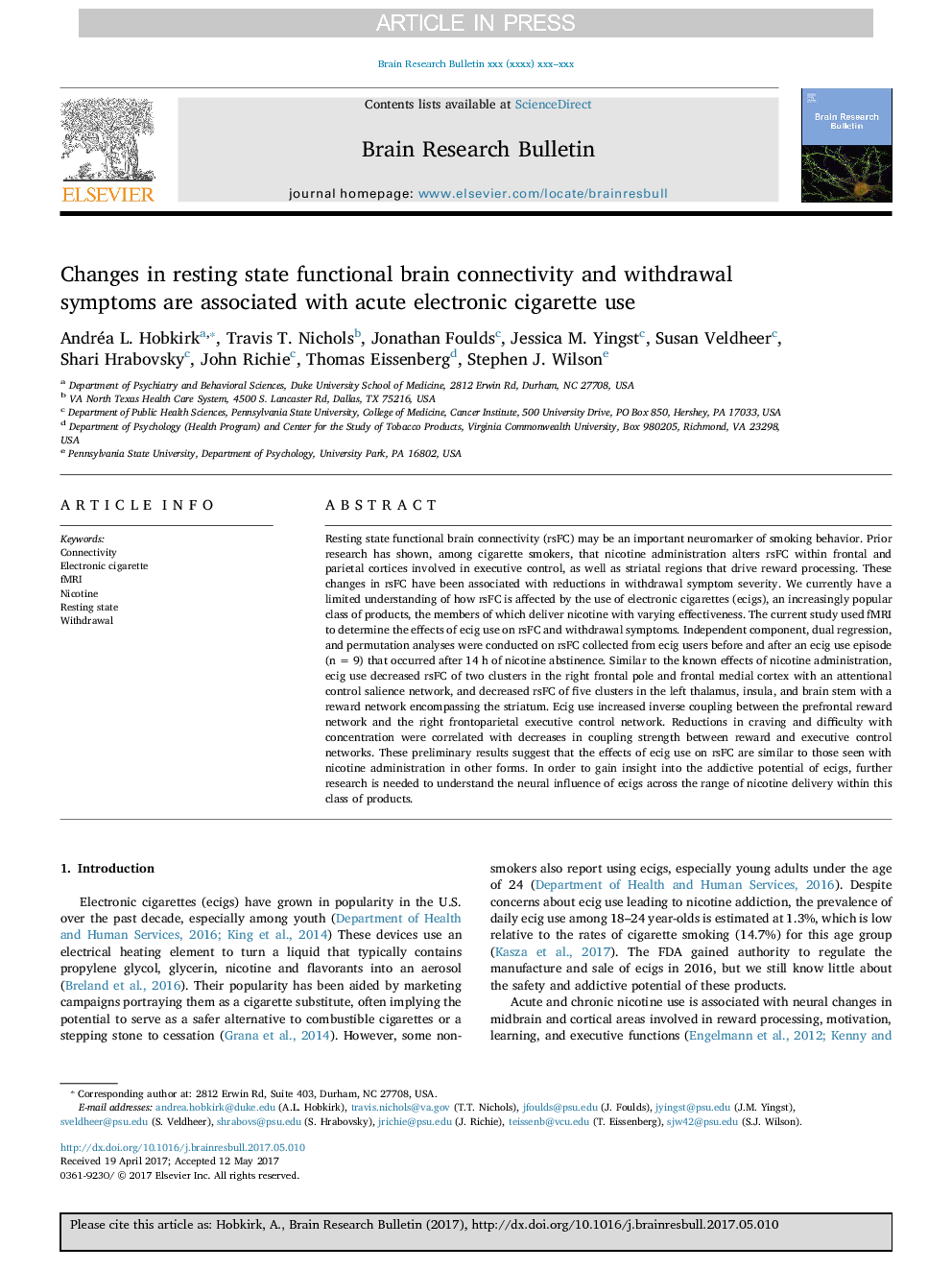ترجمه فارسی عنوان مقاله
تغییرات در حالت استراحت عملکرد مغز و علائم برداشت همراه با مصرف سیگار الکترونیکی حاد است
عنوان انگلیسی
Changes in resting state functional brain connectivity and withdrawal symptoms are associated with acute electronic cigarette use
| کد مقاله | سال انتشار | تعداد صفحات مقاله انگلیسی |
|---|---|---|
| 135979 | 2018 | 8 صفحه PDF |
منبع

Publisher : Elsevier - Science Direct (الزویر - ساینس دایرکت)
Journal : Brain Research Bulletin, Volume 138, April 2018, Pages 56-63

